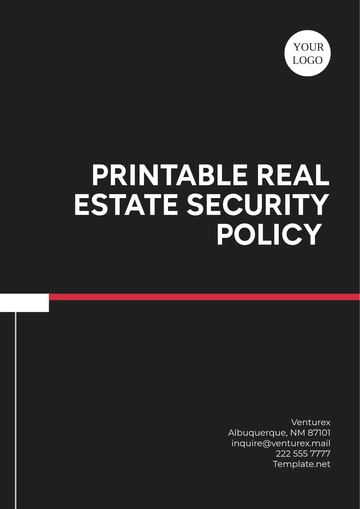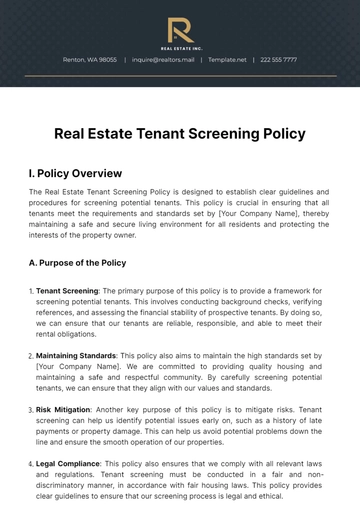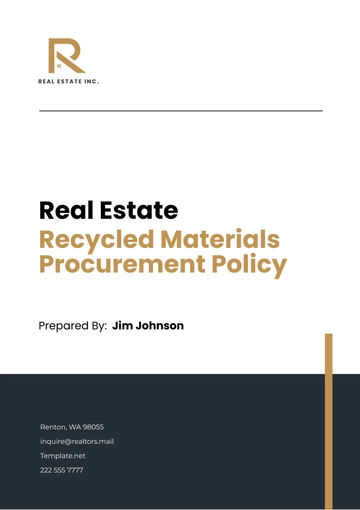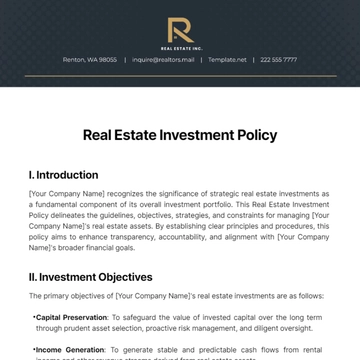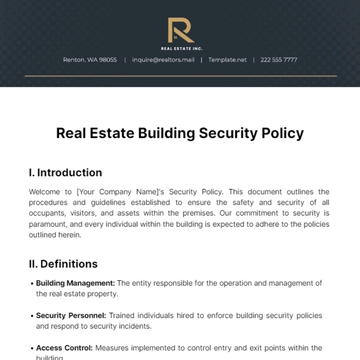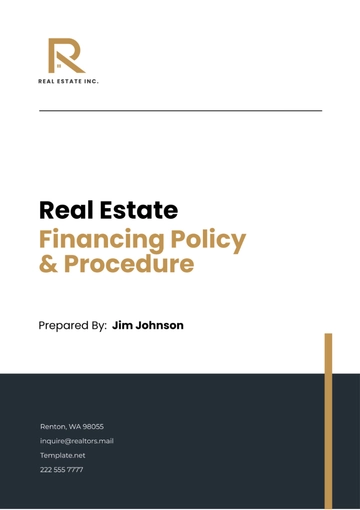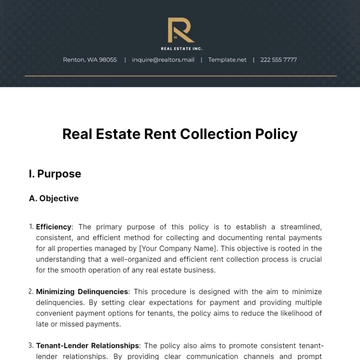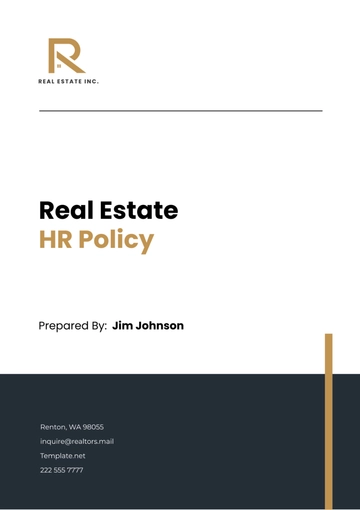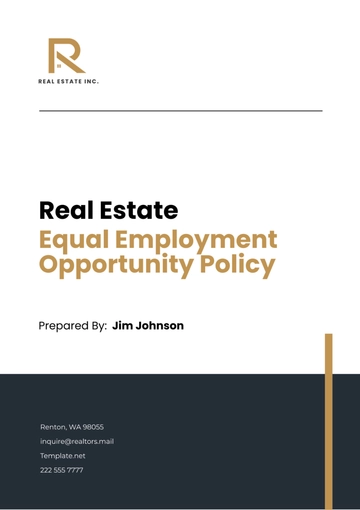Free Real Estate Rent Collection Policy
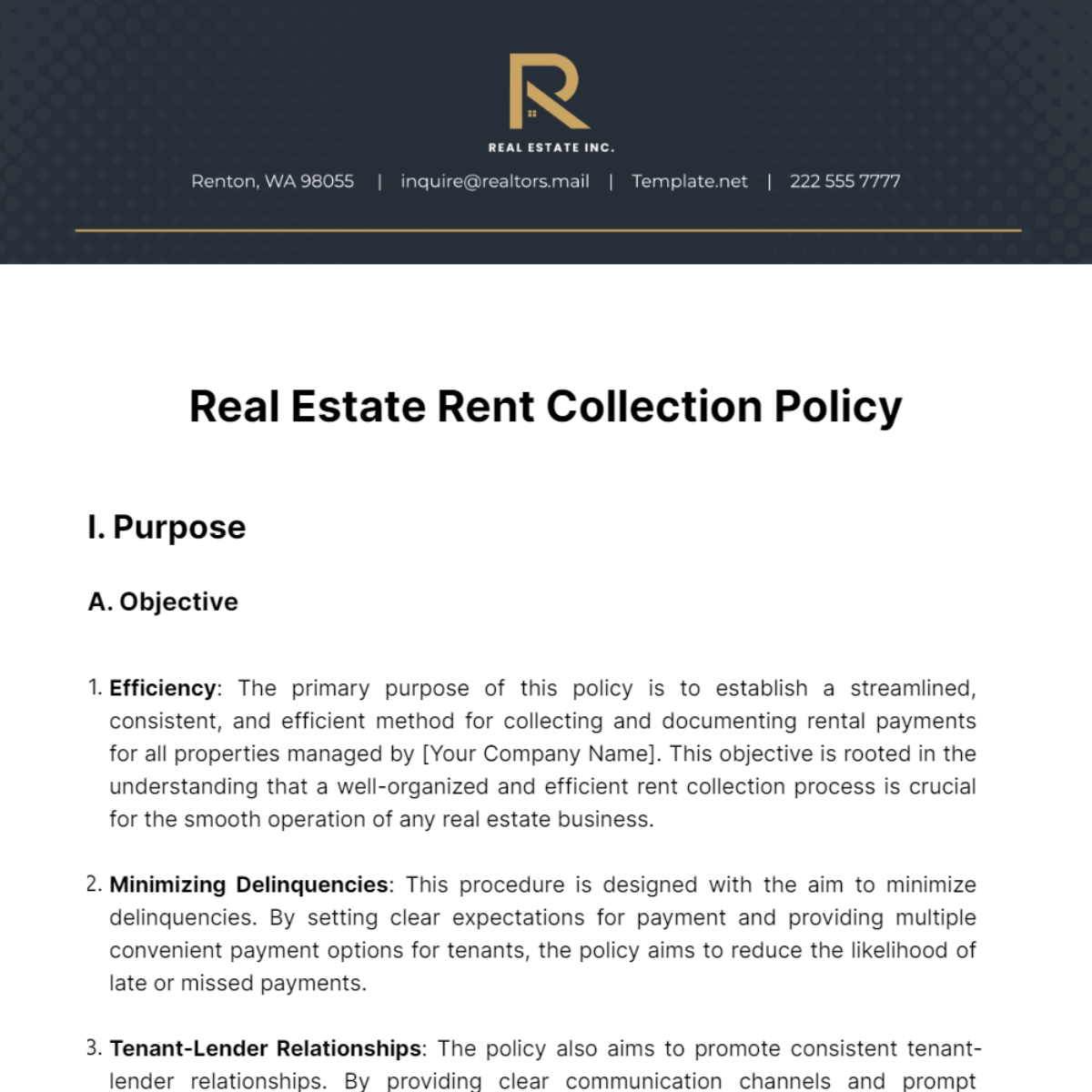
I. Purpose
A. Objective
Efficiency: The primary purpose of this policy is to establish a streamlined, consistent, and efficient method for collecting and documenting rental payments for all properties managed by [Your Company Name]. This objective is rooted in the understanding that a well-organized and efficient rent collection process is crucial for the smooth operation of any real estate business.
Minimizing Delinquencies: This procedure is designed with the aim to minimize delinquencies. By setting clear expectations for payment and providing multiple convenient payment options for tenants, the policy aims to reduce the likelihood of late or missed payments.
Tenant-Lender Relationships: The policy also aims to promote consistent tenant-lender relationships. By providing clear communication channels and prompt resolution of any issues or disputes, the policy helps to foster a positive and cooperative relationship between the tenants and the management.
Financial Stability: By ensuring timely and consistent rent collection, the policy helps ensure the financial stability of our real estate operations. Regular and reliable rent payments are a key component of the financial health of any real estate business, contributing to the overall success of the company.
B. Policy Implementation
Policy Enforcement: This policy will be enforced by the property management team of [Your Company Name]. The property management team is responsible for ensuring that all tenants are aware of and comply with the policy, and for taking appropriate action in case of any violations.
Training: All members of the property management team will receive comprehensive training on this policy. This training will ensure that all team members are fully aware of the policy and are equipped to implement it effectively and consistently across all properties managed by [Your Company Name].
II. Scope
A. Applicability
Tenants: This policy applies to all tenants residing in properties managed by [Your Company Name]. All tenants, regardless of the length or type of their lease, are expected to comply with this policy as part of their lease agreement.
Employees: The policy also affects all employees responsible for managing these properties and securing rent payments. Employees are expected to enforce this policy and provide assistance to tenants as needed, ensuring that the policy is implemented effectively and consistently.
B. Communication
Policy Updates: Any updates or changes to this policy will be communicated appropriately to all parties involved. This may include written notices, emails, or meetings, depending on the nature of the update and the preferences of the tenants and employees.
Tenant Awareness: Tenants will be made aware of this policy at the start of their lease and will be reminded of the policy at regular intervals. This ensures that all tenants are fully aware of their obligations under the policy.
Employee Training: Employees will receive regular training on this policy and any updates to ensure consistent implementation across all properties managed by [Your Company Name].
III. Policies
A. Payment Amount and Rent Due Date
Rent Amount: All tenants are obligated to pay the rent amount specified in their lease agreement. The rent amount is determined based on factors such as the size and location of the property, market rates, and the terms of the lease agreement.
Due Date: Rent is typically due on the first day of every month. This ensures that rent collection aligns with monthly budgeting and financial planning processes.
Leniency Period: A leniency period of five days from the due date will be provided without late penalties. This provides tenants with a buffer in case they are unable to make the payment on the due date.
Late Fees: Beyond this leniency period, late fees will occur as outlined in the tenant’s lease agreement. Late fees are intended to encourage timely payment and cover the costs associated with late rent collection.
B. Forms of Payment
Accepted Forms: Accepted forms of payment include electronic transfers, bank checks, and money orders only. These forms of payment provide a reliable record of transactions and are easy to track and document.
Prohibited Forms: Cash, credit card, and post-dated checks will not be accepted to protect against fraud and ensure reliable, auditable transaction records.
Payment Processing: All payments will be processed in a timely manner, and tenants will receive a receipt or confirmation of their payment.
C. Late Payment
Notification: Tenants who cannot make a payment by the due date must notify [Your Company Name] immediately. This allows the management to work with the tenant to resolve the issue and avoid unnecessary penalties or actions.
Grace Period: A grace period may be given in some cases, allowing the tenant additional time to make the payment without incurring late fees.
Repayment Plans: In exceptional circumstances, manageable repayment plans may be arranged. These plans are designed to help tenants catch up on overdue rent while still maintaining their current rent obligations.
D. Non-Payment and Eviction
Non-Payment: Non-payment of rent for an extended duration, generally two consecutive months, may result in eviction proceedings following local, state, and federal laws.
Notification: Tenants will be notified in writing of impending eviction procedures due to non-payment. This notification will include information on the amount owed, any late fees incurred, and the timeline for eviction proceedings.
Legal Proceedings: If necessary, [Your Company Name] will initiate legal proceedings to evict the tenant. These proceedings will be conducted in accordance with all applicable laws and regulations.
IV. Policy Revision
A. Review
Annual Review: This policy may be reviewed and revised on an annual basis or as needed to adapt to changes in business operations, real estate market trends, and applicable laws and regulations.
Policy Updates: Any updates to the policy will be documented and communicated to all relevant parties. This ensures that all parties are aware of the current policy and any changes that have been made.
B. Communication
Tenant Notification: Tenants will be informed of any policy changes through their preferred method of communication. This may include written notices, emails, or phone calls.
Employee Training: Employees will receive training on any new policy changes to ensure consistent implementation across all properties managed by [Your Company Name].
Created by: [Your Name], [Your Role]
Effective Date: [Month Day, Year]
- 100% Customizable, free editor
- Access 1 Million+ Templates, photo’s & graphics
- Download or share as a template
- Click and replace photos, graphics, text, backgrounds
- Resize, crop, AI write & more
- Access advanced editor
Establish a clear policy with our Real Estate Rent Collection Policy Template! This editable and customizable template, only available here on Template.net, allows you to create a comprehensive rent collection policy. It helps ensure consistency in rent collection practices. With our advanced AI Editor Tool, you can generate with ease!
You may also like
- HR Policy
- Restaurant Policy
- Company Policy
- Accounting Policies and Procedures
- Website Policy
- Privacy Policy
- Safety Policy
- School Policy
- IT and Software Policy
- Law Firm Policy
- Construction Policy
- Interior Design Policy
- Travel Agency Policy
- Education Academic Policy
- Security Policy
- Real Estate Policy
- Expense Policy
- Software Policy
